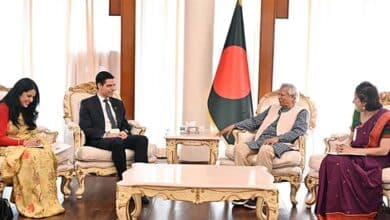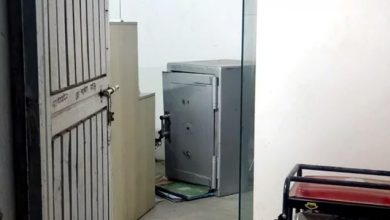Ukraine’s fate hangs in balance as ‘critical’ week of talks begins

A momentous week of diplomacy is about to get under way in Europe, with the fate of Ukraine, hemmed in by 100,000 Russian troops, hanging in the balance.
Senior diplomats from the US and Russia will meet in Geneva on Sunday and Monday to discuss Moscow’s demands, set out last month in two draft treaties, one with the US and one with Nato. Much of their content is unacceptable to Washington and the alliance, most importantly a pledge that Ukraine will never be a Nato member.
The Biden administration insists that sovereign states’ right to apply for Nato membership is not negotiable. Nor are US troop deployments in Europe, administration officials have stressed on the eve of the talks. They said, however, that Washington would discuss other security guarantees, such as mutual limits on missile deployments and military exercises on the continent. That would fall far short of the comprehensive changes Moscow is demanding.
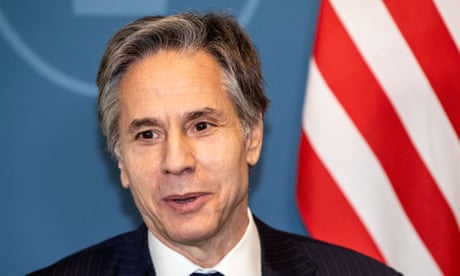
Few if any diplomatic observers expect a quick deal to resolve the crisis this week, and the opposite – a complete breakdown – is possible. It should quickly become apparent whether Russia is interested in negotiating over its proposals or whether they were designed to be rejected, creating a pretext for a war Vladimir Putin has already decided on.
“Lower your expectations and then lower them some more,” said Melinda Haring, the deputy director of the Eurasia Center at the Atlantic Council. “Watch Moscow’s demands in the meetings. If Russia insists that Nato cannot expand ever again, we will know that Moscow is preparing for war in Ukraine, since this is a red line for the west.”
The two sides in Geneva will be led by veteran negotiators, the US deputy secretary of state, Wendy Sherman, and her Russian counterpart, Sergei Ryabkov, accompanied by senior officials from their respective defence departments and militaries. The negotiations are scheduled to begin on Monday, but officials said there would be a less formal meeting between the two delegations on Sunday evening.
US officials say that Sherman and her team will discuss only the bilateral elements of Russia’s proposals, and not anything in which other countries have a sovereign stake. The mantra to Kyiv and Nato capitals is: “Nothing about you without you.”
The negotiating teams will move to Brussels on Wednesday for a session of the Nato-Russia Council, in which all 30 alliance members will take part. It will be the first such meeting since 2019 of the council, which was established in 2002 to defuse tensions and build consensus.
“We believe that after bilateral talks with the United States and then the Nato format, it is possible that in this wider forum, some developments are possible,” said Nikodem Rachoń, the spokesperson for the Polish embassy in Warsaw.
Washington says the US-Russia meeting in Geneva would primarily be an opportunity to present positions rather than resolve them.
“On Monday we will listen to Russia explain its proposals and the underlying concerns motivating them. We will respond and share our own concerns,” a senior administration official said. “Hopefully it will result in identifying a few bilateral issues where there is enough common ground to continue discussions.”
It is not clear whether either Sherman or Ryabkov have been empowered to put new ideas on the table. “They will talk about the Russian posture, they will talk about stability,” said a European diplomat briefed on US preparations. “They will talk about the Russian demands and explain why they’re not acceptable, and they will lay out some queries of our own about European stability and Russian actions.”
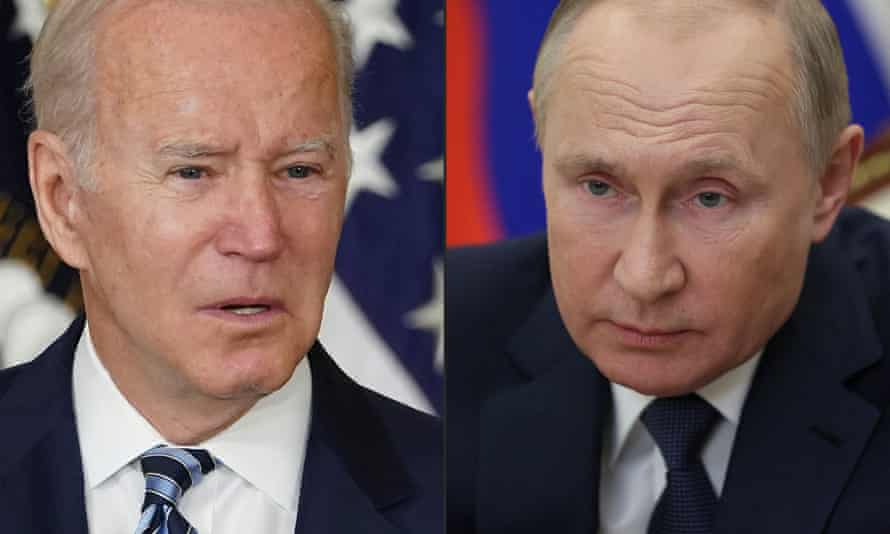
Sherman is also expect to list the costs to Russia if it goes ahead with military action in Ukraine, including sweeping financial sanctions, possibly cutting it off from the international electronic payments system, Swift, and limits on its citizens’ ability to buy western technology.
According to the New York Times, the chairman of the US joint chief of staff, Gen Mark Milley, has also warned his Russian counterpart, Gen Valery Gerasimov, that an invasion would face a long insurgency, backed by advanced US weaponry. US officials have refused to comment on reports that Stinger anti-aircraft missiles were being sent to Ukraine in anticipation of such a guerrilla war.
“This week’s diplomacy is critical. From a certain moment it was clear that the est would not say an outright ‘no’ to Moscow’s proposal because too much was at stake. The question was, how far Washington and Europeans are ready to go with the talks,” said Andrey Baklitskiy, a senior research fellow at the Moscow State Institute of International Relations.
Russia’s rushed military intervention in Kazakhstan has thrown another wildcard on to the table, but Baklitskiy does not expect any impact on the Ukraine crisis. “There is no direct link between Ukraine and Kazakhstan. Even the people handling the issue in Russia are different except for the very top,” he said.
Others say it is too early to tell whether the uprising and the response will unnerve or embolden the Kremlin. “To what extent are the Russians worried about Kazakhstan or believe they can manage it? I don’t think we have a feel for that yet,” one European diplomat said.
If there is wriggle room at all in this week’s negotiations, it could come in one of a handful of categories. The Biden administration and Nato’s secretary general, Jens Stoltenberg, have ruled out bowing to Russian demands to preclude Ukraine’s membership of the alliance, but some analysts say that leaves open the possibility of a compromise, in which the theoretical possibility of membership is asserted at the same time as a clear statement that there would be many obstacles to overcome and so it would not happen in the near future.
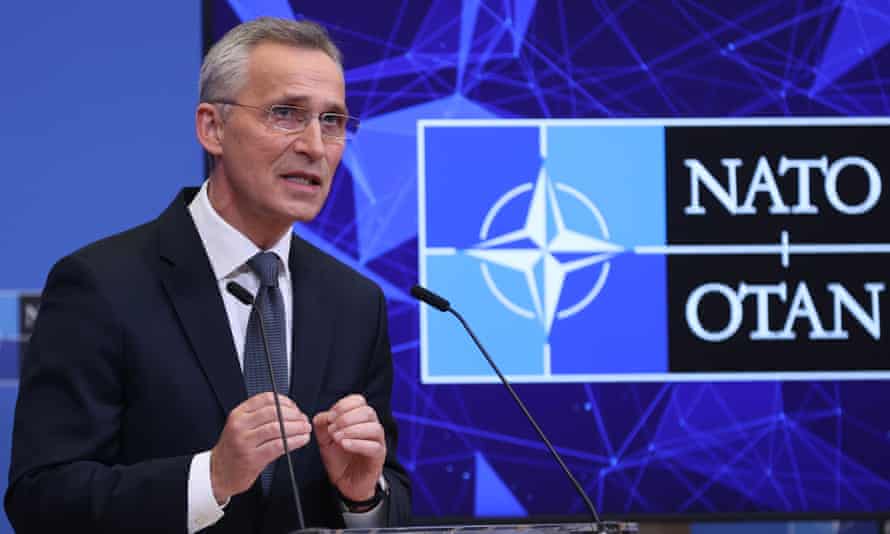
Another area of possible compromise is on the deployment of forces. The Russian proposals call for the withdrawal of US forces from Nato’s eastern flank, where they were sent after Moscow’s 2014 annexation of Crimea, and a guarantee that no intermediate-range nuclear capable missiles would be deployed on European soil.
The proposals did not offer reciprocal moves by Russia to pull back its troops from the Ukrainian border region or withdraw its own missiles. That could be an area for negotiation. Russia has expressed concerns about the possibility of offensive weapons, such as missiles capable of reaching Moscow, being deployed in Ukraine. Washington has said it has no intention of taking such a step.
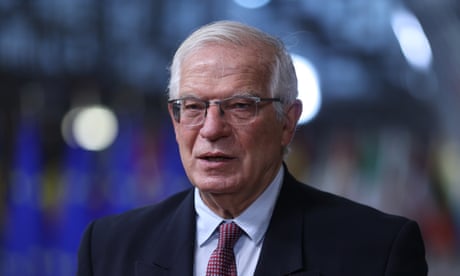
The most severe limiting factor in the negotiations could turn out to be the political constraints on the main parties.
“If you look at the polarisation here, it suggests that we have no bandwidth on the US side to actually do anything, sue for peace, let alone come up with a treaty or series of treaties,” said Fiona Hill, a former senior director for European and Russian affairs on the US national security council. “Putin has his own time frame of elections in 2024, and he wants to have something to show because his own popularity is lagging somewhat.”
The deployment of so many troops and the Kremlin’s rhetoric have set high Russian expectations of what would constitute a satisfactory outcome from the week’s diplomacy. Officials in Moscow have insisted that nothing short of “legally formulated guarantees of security” would be enough to pull back the troops from the Ukrainian border.
“Putin has put himself in a position where he has to come back with something, without looking really weak,” Menon said. “Given the political realities now, am I confident that a deal is going to happen? No, not at all. I think it’s going to be very, very dicey.”




